Jon Favreau Seemingly Confirms The Mandalorian Will Lead To The Sequel Trilogy
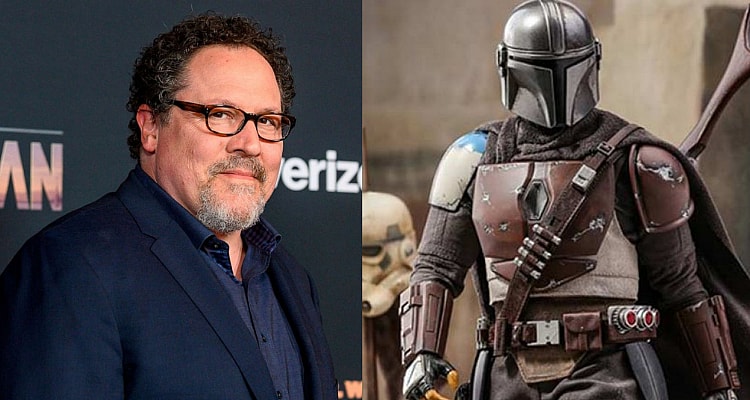
The Mandalorian creator and executive producer Jon Favreau seemingly confirmed the Star Wars show will lead to the sequel trilogy.
In a recent interview with the Writers Guild of America (WGA), Favreau opened up about the show, how it came about, and his writing process going forward.
The interview peels back the curtain on what Favreau had planned from the beginning when he first pitched the show to Lucasfilm president Kathleen Kennedy and how he plans to move the show forward into the future.

First, Favreau detailed he pitched a story that would get back to the basics of Star Wars.
He explained, “Yeah. I had a pitch for a concept of following the archetypes that influenced George Lucas whether it was the Western, the samurai film, the World War II film, earlier space operas, cliffhangers, Flash Gordon—looking at the films and the archetypes that influenced George was a way for us to make a smaller story that would work for the scale of the small screen and get back to the basics.”
“My pitch was very simple at first and Kathy Kennedy was receptive to the ideas I was presenting,” he added.
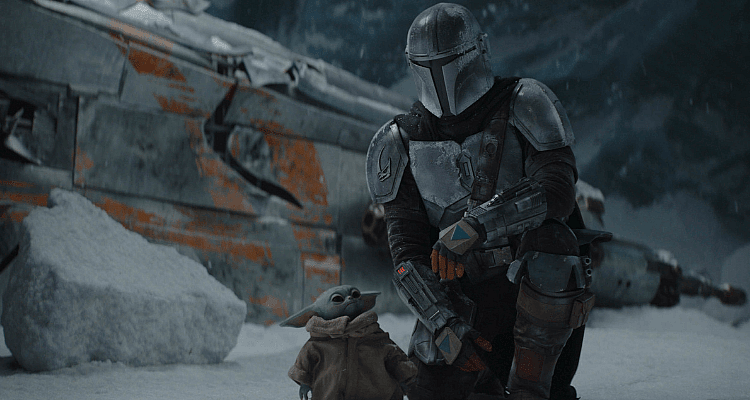
Later in the interview, Favreau was asked about whether the return of Luke Skywalker as seen in the Season 2 finale was always planned out.
He answered, “No. The story unfolded as I wrote it. The Mandalorian inherits a great deal from existing Star Wars stories, and when I write, that context is always a consideration.”
Favreau then insinuated that he is indeed taking the Sequel Trilogy into consideration saying, “It became clear that, within the established continuity, certain things were likely to transpire.”
In a follow-up question, he would be specifically asked if he felt penned in narratively given the Sequel Trilogy reveals Luke’s future.
He replied, “We have a tremendous amount of freedom afforded to us because of the gap in time between the films. Dave Filoni and I are in constant discussion regarding how each story choice is impacted by, and would impact, existing Star Wars material.”
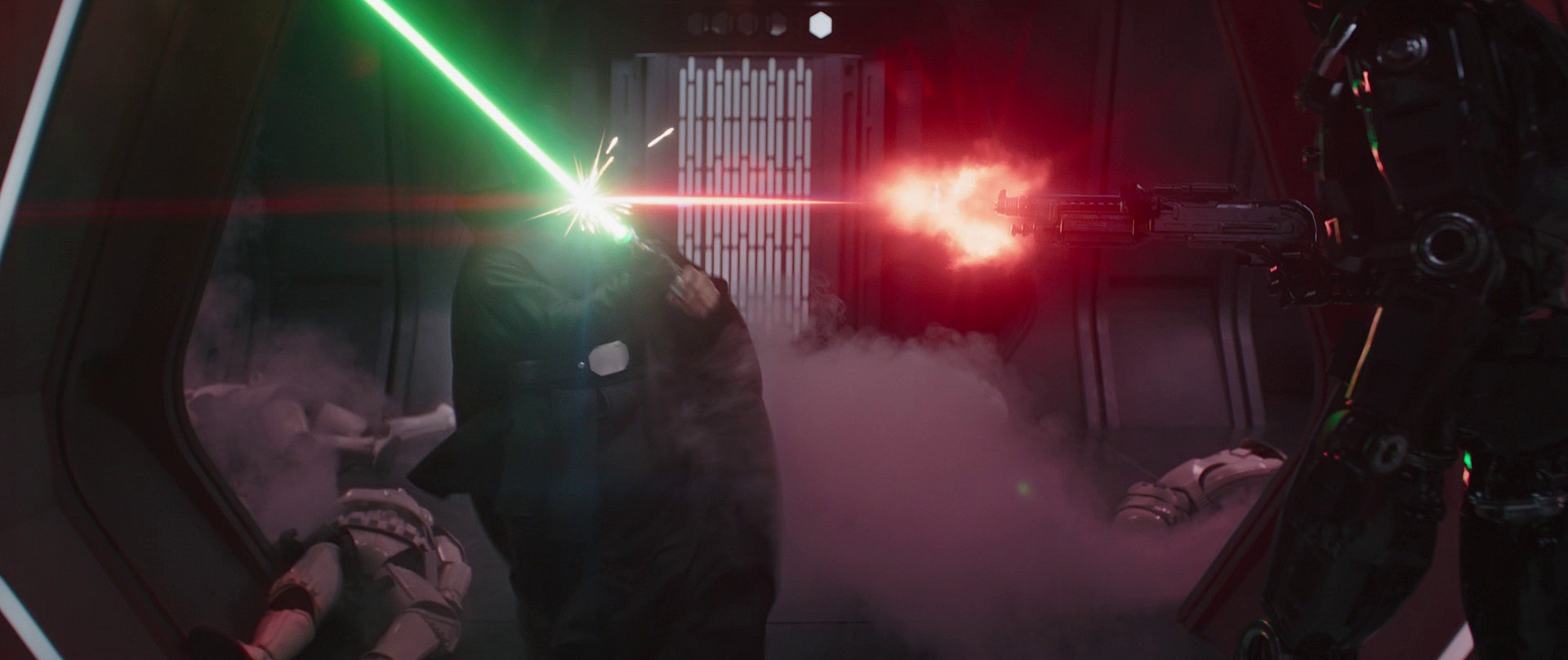
I would be remiss without pointing out that even before The Mandalorian released, Favreau explained that the show would be exploring the origins of the First Order, which were introduced in the Sequel Trilogy.
He stated, “Also, what could happen in the 30 years between celebrating the defeat of the Empire and then the First Order? You come in on Episode VII, [the First Order are] not just starting out. They’re pretty far along.”
“So somehow, things weren’t necessarily managed as well as they could have been if [the galaxy] ended up in hot water again like that,” Favreau added.
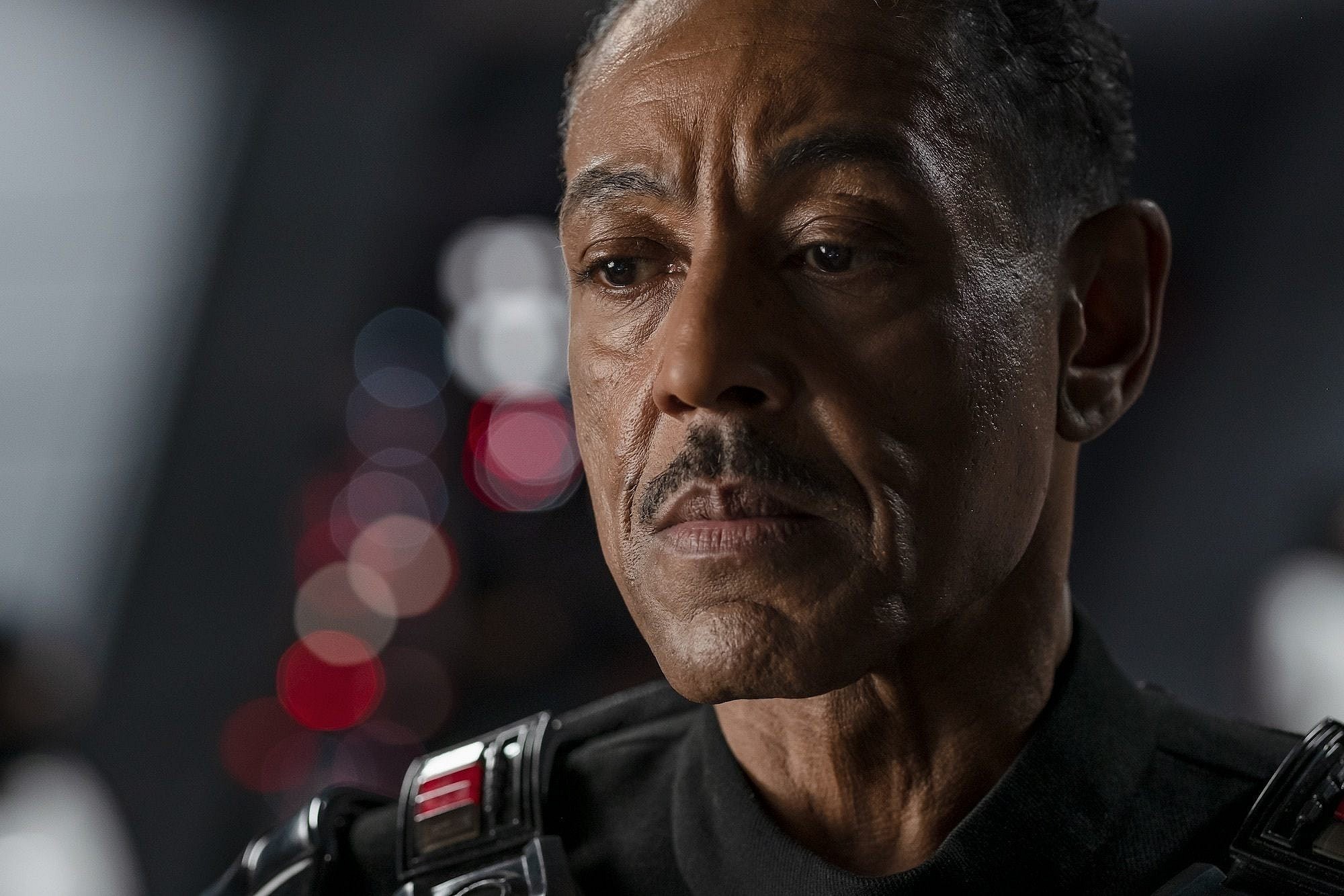
As the interview with WGA progressed, Favreau did credit himself for much of The Mandalorian’s writing. He stated, “You have to be very prolific in this new medium because so much writing is required when you’re putting that many hours television on the air. It requires creativity, which is a lot different than the burnishing of one piece of material as you do for theatrical. Here, it’s a river of writing and it’s not something where I have a big writing staff.”
“I’ve taken on a lot of that responsibility myself, which isn’t to say that it’s not a collaborative process, but the actual typing out of it, where the rubber hits the road, ends up falling on your shoulders when you’re staring at your computer,” he added.
Favreau continued, “Having an understanding of how story fits into, not just our series, but the Star Wars universe, that’s something that requires a very collaborative approach. That collaboration is what inspires me to be able to go home and type and write scenes alone. We found a very interesting, cool balance that’s about as fulfilling as anything I’ve ever worked on in my whole career.”
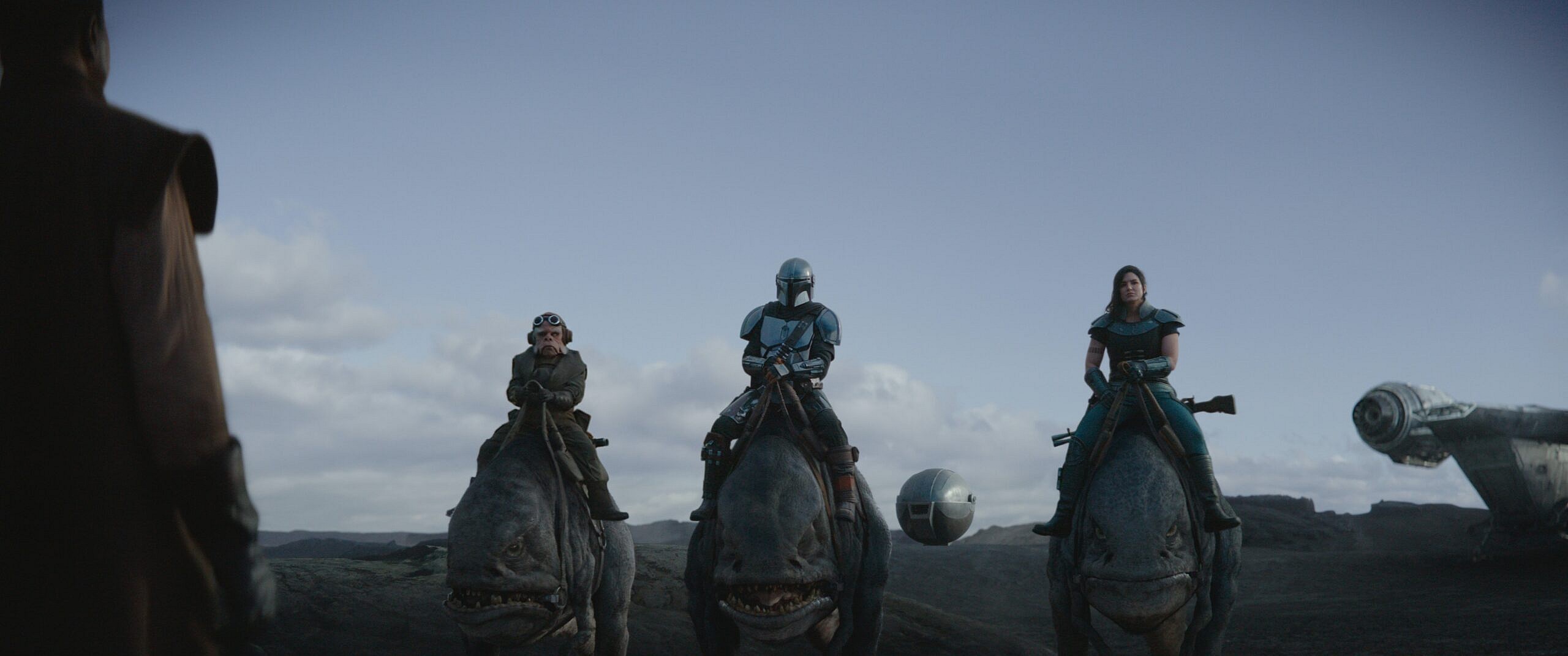
However, later in the interview he does credit his collaborators saying, “Even though my name is on a lot of the episodes, realize that there’s a whole supportive creative community around this project, whether it’s people who are reading and giving notes, or people who are helping me research, or people who are making drawings, or directors that are interpreting it, or editors that are ultimately rewriting it later through the editorial process with us. There are a lot of hands.”
But even then he does state that it all starts with him, “There are a lot of cooks in the kitchen, but the actual sitting down and tapping out the work is where much of it starts.”
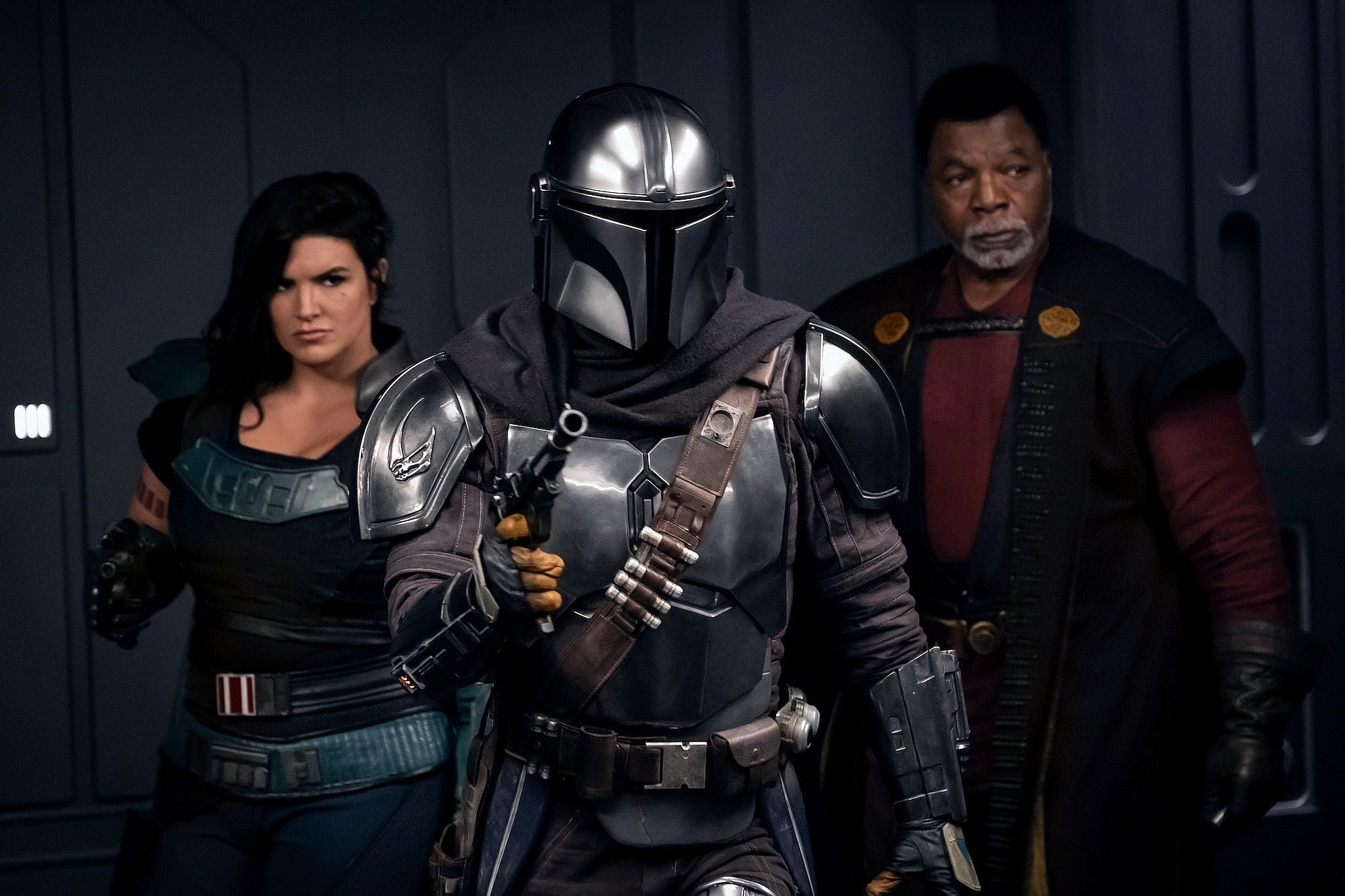
In one of the more interesting moments of the interview, Favreau claims he doesn’t really have a plan for the series and is writing as he goes. This is similar to how Lucasfilm operated with the Sequel Trilogy.
If you recall, Rian Johnson revealed to the New York Times back in 2017 before The Last Jedi released that the sequel trilogy was not planned out.
The director explained, “I had figured there would be a big map on the wall with the whole story laid out, and it was not that at all. I was basically given the script for “Episode VII;” I got to watch dailies of what J. J. was doing. And it was like, where do we go from here? That was awesome.”

When asked if there was anyone telling him that certain plot points needed to be included, Johnson answered, “Nothing like that. But it’s the second film in a trilogy. The first film got these characters here. This second movie has to dig into and challenge these characters. I wanted this to be a satisfying experience unto itself. I didn’t want it to end with a dot, dot, dot, question mark.”
Johnson would go on to imply that he didn’t really even consult J.J. Abrams. He stated, “If I had questions — what did you think this was going to be? What were your ideas for this? — I could always ask him. But those questions only address what these characters want and how they get there.”
He continued, “Take the question of who Rey’s parents are: If you get the information — oh, it’s that! — who really cares? I know a lot of people care, but it’s interesting as opposed to impactful. Now, what is my place in the world? Where do I come from? Where do I belong? O.K., I understand what the weight of that is. We could play with those questions and their answers to have the biggest emotional impact on these characters.”

Johnson would then reveal it was up to him to figure out Luke Skywalker’s story for The Last Jedi, “That was the first thing I had to figure out. Why is Luke on that island? And I didn’t have any answers. But it’s not like you can just pick anything you want out of the air. I grew up having a sense of who Luke Skywalker is. It guides you to a very specific path. I know he’s not hiding on the island. I know he’s not a coward. He must be there for a reason that he believes in. You’re finding a path forward, but there end up being fewer choices than you think.”
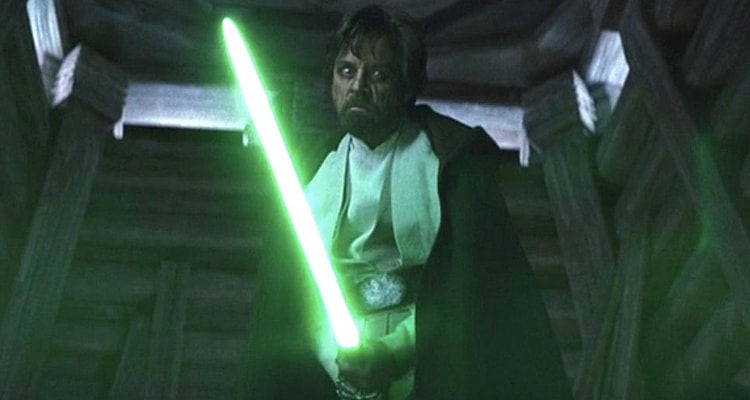
Favreau’s comments to the WGA are very similar. When discussing the concept art shown at the end of each episode and how it pulls the curtain back on the writing process, Favreau stated, “We also made the choice to not edit out things that didn’t make it to air or that changed, so it really shows the writer’s notes and this idea of this ongoing, pulpy writing process whereby you’re creating the story as you go, and people are waiting for the next chapter to come out…”
He continued, “We think about it as novels or books, but there’s something really pure about this back and forth between an audience and storytellers that seems, in a weird way, through technology, to emulate the campfire storytelling.”
“I really like the back and forth with the audience and I love the back and forth with the artists, directors and other people that I’m collaborating with. I’m writing for other directors most of the time, and that’s something I’ve never experienced either,” Favreau elaborated.
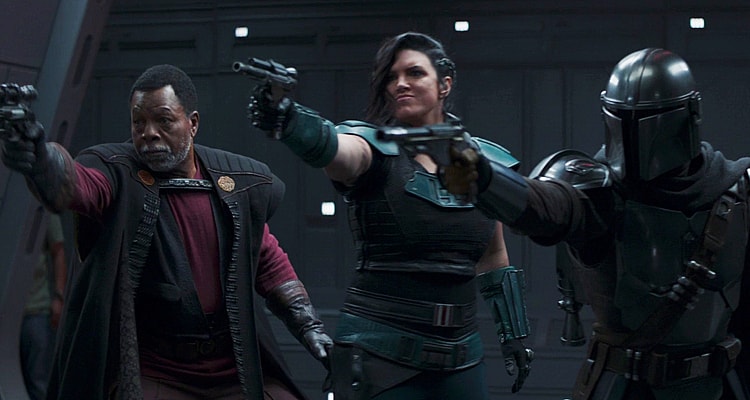
Favreau goes on to detail that the story he is writing is actually being influenced by audience feedback. He says, “In this case, there’s a feedback loop that’s so immediate that it’s actually affecting the way that you’re writing moving forward, based on what you’re seeing and also the feedback from the audience.”
The executive producer elucidates, “And this immediate world of streaming, where it goes out there and you get immediate feedback, is so different than movies, where you could sit in the back of the theater or read reviews. Here, there’s a conversation that’s flowing around you and it just depends to what extent you want to bend your ear to that, or isolate yourself from it, depending on what will most fully support you creatively.”
“Some people like to wall themselves off, which I sometimes do. And some people like to really just wade into it. Now you can listen to every water cooler in every office, essentially, thanks to the internet,” he adds.

Separating himself from how Lucasfilm employees typically behave, Favreau understands and seemingly respects his audience and says it’s something he learned while working for Marvel.
He explains, “There’s something really cool about putting a small sample of what you’re doing out there to your core audience and seeing if they are sparked to it. Because, at the end of the day, it’s a conversation with that audience. And those fans are who you’re speaking to. And if you’re doing something that they’re not feeling, you’re not doing your job right.”

What do you make of Favreau’s comments? What do you make of the fact that it does indeed appear The Mandalorian will tie-in with the sequel trilogy?
